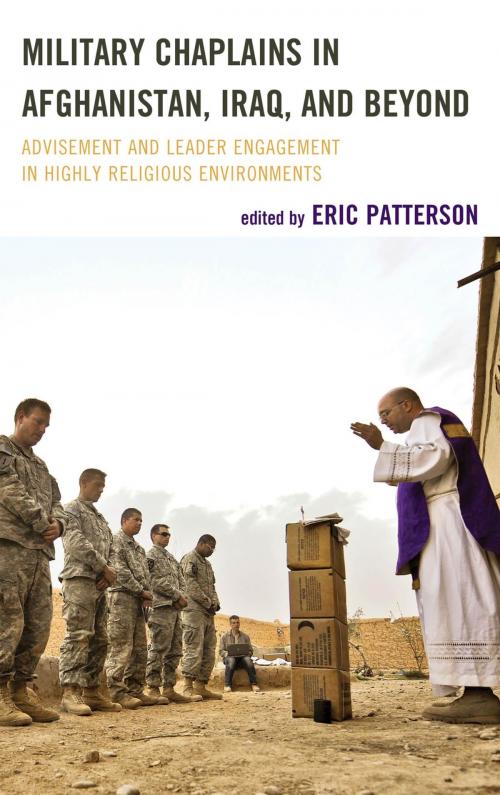Military Chaplains in Afghanistan, Iraq, and Beyond
Advisement and Leader Engagement in Highly Religious Environments
Nonfiction, Social & Cultural Studies, Political Science, International, International Security, International Relations| Author: | Douglas L. Carver, Capt. Jon Cutler, Ron E. Hassner, LaShanda D. Hess-Hernandez, Colonel Mike Hoyt, Lt. Col. Eric Keller, Jason Klocek, S. K. Moore, Dayne Nix, Pauletta Otis Ph. D., Gary E. Roberts, Colonel William David West, Eric Wester | ISBN: | 9781442235403 |
| Publisher: | Rowman & Littlefield Publishers | Publication: | August 7, 2014 |
| Imprint: | Rowman & Littlefield Publishers | Language: | English |
| Author: | Douglas L. Carver, Capt. Jon Cutler, Ron E. Hassner, LaShanda D. Hess-Hernandez, Colonel Mike Hoyt, Lt. Col. Eric Keller, Jason Klocek, S. K. Moore, Dayne Nix, Pauletta Otis Ph. D., Gary E. Roberts, Colonel William David West, Eric Wester |
| ISBN: | 9781442235403 |
| Publisher: | Rowman & Littlefield Publishers |
| Publication: | August 7, 2014 |
| Imprint: | Rowman & Littlefield Publishers |
| Language: | English |
The role of military chaplains has changed over the past decade as Western militaries have deployed to highly religious environments such as East Africa, Afghanistan, and Iraq. U.S. military chaplains, who are by definition non-combatants, have been called upon by their war-fighting commanders to take on new roles beyond providing religious services to the troops. Chaplains are now also required to engage the local citizenry and provide their commanders with assessments of the religious and cultural landscape outside the base and reach out to local civilian clerics in hostile territory in pursuit of peace and understanding.
In this edited volume, practitioners and scholars chronicle the changes that have happened in the field in the twenty-first century. Using concrete examples, this volume takes a critical look at the rapidly changing role of the military chaplain, and raises issues critical to U.S. foreign and national security policy and diplomacy.
The role of military chaplains has changed over the past decade as Western militaries have deployed to highly religious environments such as East Africa, Afghanistan, and Iraq. U.S. military chaplains, who are by definition non-combatants, have been called upon by their war-fighting commanders to take on new roles beyond providing religious services to the troops. Chaplains are now also required to engage the local citizenry and provide their commanders with assessments of the religious and cultural landscape outside the base and reach out to local civilian clerics in hostile territory in pursuit of peace and understanding.
In this edited volume, practitioners and scholars chronicle the changes that have happened in the field in the twenty-first century. Using concrete examples, this volume takes a critical look at the rapidly changing role of the military chaplain, and raises issues critical to U.S. foreign and national security policy and diplomacy.















